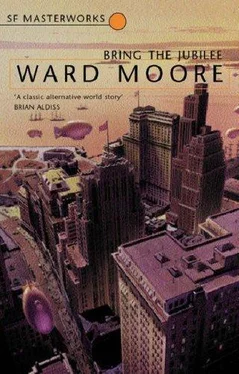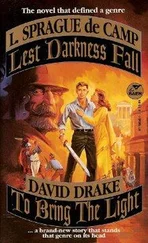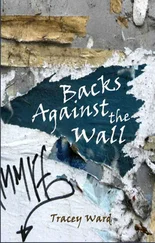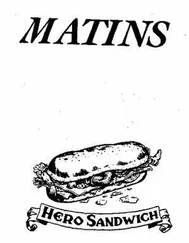The country boy who had never seen anything more metropolitan than Poughkeepsie was tremendously impressed. Buildings of eight or ten stories were common, and there were many of fourteen or fifteen, serviced by pneumatic English lifts, that same marvelous invention which permitted the erection of veritable skyscrapers in Washington and Leesburg.
Above them balloons moved gracefully through the air, guided and controlled as skillfully as old-time sailing vessels. These were not entirely novel to me; I had seen more of them than I had minibiles, but never so many as here. In a single hour, gawking upward, I counted seven, admiring how nicely calculated their courses were, for they seldom came so low as to endanger lives beneath by having to throw out sandbags in order to rise. That they could so maneuver over buildings of greatly uneven height showed this to be the air age indeed.
Most exciting of all was the great number of people who walked, rode, or merely stood around on the streets. It seemed hardly believable so many humans could crowd themselves so closely. Beggars pleaded, touts wheedled, peddlers hawked, newsboys shouted, bootblacks chanted. Messengers pushed their way, loafers yawned, ladies shopped, drunks staggered. For long moments I paused, standing stock-still, not thinking of going on, merely watching the spectacle.
How far I walked, how many different parts of the city I explored that day, I have no idea. I felt I had hardly begun to fondle the sharp edge of wonder when it was twilight and the gas lamps, lit simultaneously by telegraph sparks, gleamed and shone on nearly every corner. Whatever had been drab and dingy in daylight—and even my eyes had not been blind to the dirt and decay—became in an instant magically enchanting, softened and shadowed into mysterious beauty. I breathed the dusty air with a relish I had never known in the country and felt I was inhaling some elixir for the spirit.
But spiritual sustenance is not quite enough for a seventeen-year-old, especially one who is beginning to be hungry and tired. I was desperately anxious to hoard the three precious dollars in my pocket, for I had little idea how to go about replacing them, once they were spent. I could not do without eating, however, so I stopped in at the first gaslit bakery, buying, after some consideration, a penny loaf, and walked on through the entrancing streets, munching at it and feeling like a historical character.
Now the fronts of the tinugraph lyceums were lit up by porters with long tapers, so that they glowed yellow and inviting, each heralded with a boldly lettered broadside or dashingly drawn cartoon advertising the amusement to be found within. I was tempted to see for myself this magical entertainment of pictures taken so close together they gave the illusion of motion, but the lowest admission price was five cents. Some of the more garish theaters, which specialized in the incredible phonotos—tinugraphs ingeniously combined with a sound-producing machine operated by compressed air, so that the pictures seemed not only to move but to talk—actually charged ten or even fifteen cents for an hour's spectacle.
By this time I ached with tiredness; the insignificant bundles of shirt and books had become a burden. I was pressed by the question of where to sleep and began thinking more kindly than I would have believed possible of last night's slum. I didn't connect my need with the glass transparencies behind which gaslight shone through the unpainted letters of BEDS, ROOMS, or HOTEL, for my mind was hazily fixed on some urban version of the inn at Wappinger Falls or the Poughkeepsie Commercial House.
I became more and more confused as fatigue blurred impressions of still newer marvels, so that I am not entirely sure whether it was one or a succession of girls who offered delights for a quarter. I know I was solicited by crimps for the Confederate Legion who operated openly in defiance of United States law, and an incredible number of beggars accosted me.
At last I thought of asking directions. But without realizing it I had wandered from the thronged wooden or granite sidewalks of the brightly lit avenues into an unpeopled, darkened area where the buildings were low and frowning, where the flicker of a candle or the yellow of a lamp in windows far apart were uncontested by any streetlights.
All day my ears had been pressed by the clop of hooves, the rattling of iron tires, or the puffing of minibiles; now the empty street was unnaturally still. The suddenly looming figure of another walker seemed the luckiest of chances.
“Excuse me, friend,” I said. “Can you tell me where's the nearest inn, or anywhere I can get a bed for the night cheap?”
I felt him peering at me. “Rube, huh? Much money you got?”
“Th—Not very much. That's why I want to find cheap lodging.”
“Okay, Reuben. Come along.”
“Oh, don't trouble to show me. Just give me an idea how to get there.”
He grunted. “No trouble, Reuben. No trouble at all.”
Taking my arm just above the elbow in a firm grip he steered me along. For the first time I began to feel alarm. However, before I could attempt to shrug free he had shoved me into the mouth of an alley, discernible only because its absolute blackness contrasted with the relative darkness of the street.
“Wait—” I began.
“In here, Reuben. Soundest night's sleep you've had in a long time. And cheap—it's free.”
I started to break loose and was surprised to find he no longer held me. Before I could even begin to think, a terrific blow fell on the right side of my head and I traded the blackness of the alley for the blackness of insensibility.
III. A MEMBER OF THE GRAND ARMY
I was recalled to consciousness by a smell. More accurately a cacophony of smells. I opened my eyes and shut them against the unbearable pain of light; I groaned at the equally unbearable pain in my skull. Feverishly and against my will I tried to identify the walloping odors around me.
The stink of death and rottenness was thick. I knew there was an outhouse—many outhouses—nearby. The ground I lay on, where it was not stony, was damp with the water of endless dish washings and launderings. The noisomeness of offal suggested that the garbage of many families had never been buried, but left to rot in the alley or near it. In addition there was the smell of death, not the sweetish effluvium of blood, such as any country boy who has helped butcher a bull calf or hog knows, but the unmistakable stench of corrupt, maggoty flesh. Besides all this there was the spoor of humanity.
A new discomfort at last forced my eyes open for the second time. A hard surface was pressing painful knobs into my exposed skin. I looked and felt around me.
The knobs were the scattered cobbles of a fetid alley; not a foot away was the cadaver of a dog, thoroughly putrescent; beyond him a drunk retched and groaned. A trickle of liquid swill wound its way delicately over the moldy earth between the stones. My coat, shirt, and shoes were gone, so was the bundle with my books. There was no use searching my pocket for the three dollars. I knew I was lucky the robber had left me my pants and my life.
A middle-aged man, at least he looked middle-aged to my youthful eye, regarded me speculatively over the head of the drunk. A pale, elliptical scar interrupted the wrinkles on his forehead, its upper point making a permanent part in his thin hair. Tiny red veins marked his nose; his eyes were bloodshot.
“Pretty well cleaned yuh out, huh boy?”
I nodded—and then was sorry for the motion. “Reward of virtue. Assuming you was virtuous, which I assume. Come to the same end as me, stinking drunk. Only I still got my shirt. Couldn't hock it no matter how thirsty I got.”
I groaned.
Читать дальше












